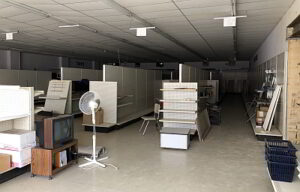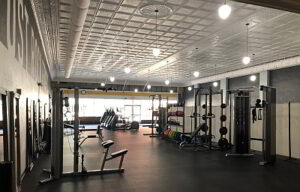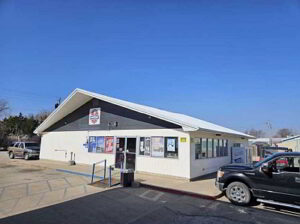Technical Assistance Grants Available in Some Areas
 Although specific housing challenges may vary among communities, what remains the same is there are no simple solutions when it comes to addressing those needs.
Although specific housing challenges may vary among communities, what remains the same is there are no simple solutions when it comes to addressing those needs.
A good first step is evaluating existing housing stock and determining goals and priorities. If a community is interested in applying for outside funding for a housing project, most funding agencies require some type of a housing study or housing needs assessment.
“I recommend that each community complete or update their Housing Assessment Tool to be ready for funding opportunities,” said Keegan Bailey, NCRPC Housing Director.
Completing a Housing Assessment Tool, also known as the HAT, is required to apply for a Housing Rehabilitation and Demolition Project through the Kansas Department of Commerce Community Development Block Grant (CDBG) Program. The HAT is also useful for other funding programs. It helps communities assess their housing inventory and needs and may eliminate the need to hire a consultant to perform a housing study. A HAT is good for five years unless there are major changes in the community, such as losing or gaining a large employer.
“Although the HAT is a community-led effort, we are ready to work with communities to answer questions and help guide you every step of the way to develop a plan,” Bailey said.
For communities located in the 26-county service area of the Northwest Kansas Economic Innovation Center, Inc., there is now grant funding that can help. The K-State 105 Technical Assistance Grant provides funding for professional services to assist rural communities in developing or updating their HAT. The Innovation Center is a K-State 105 partner. K-State 105 is Kansas State University’s answer to the call for a comprehensive economic growth and advancement solution for Kansas.
The maximum grant amount for technical assistance for each new HAT is $1,500. A local match of $500 is required, which can be cash or in-kind service directly related to the development of the HAT. For communities only needing to update their HAT, the maximum grant amount is $750 for technical assistance with a $250 local match required. To view the Innovation Center service area, visit https://nwkeici.org/programs.
“We know that understanding the complexities of housing and the various funding sources available can be overwhelming,” Bailey said. “We are here to be a resource for communities and to help simplify the process as much as possible.”
Funding is also available from the Innovation Center to assist rural communities in creating a Reinvestment Housing Incentive District (RHID) — including the Housing Needs Analysis. More information about RHIDs and the HAT can be found at the Innovation Center website.
For questions about the HAT or to get started, contact NCRPC Housing Director Keegan Bailey at 785-738-2218 or housing@ncrpc.org.
This article appeared in the Quarter 4 2023 NCRPC Newsletter.



 There are many great things happening in North Central Kansas. Project Spotlight shares stories from communities around the region and how they solved challenges.
There are many great things happening in North Central Kansas. Project Spotlight shares stories from communities around the region and how they solved challenges. Funding is available for physical security enhancements and other security-related activities for nonprofit organizations at high risk of a terrorist attack. The funding comes from the Kansas Nonprofit Security Grant Programs (NSGP). The program also seeks to integrate the preparedness activities of nonprofit organizations with broader state and local preparedness efforts, such as enhancing the protection of crowded areas.
Funding is available for physical security enhancements and other security-related activities for nonprofit organizations at high risk of a terrorist attack. The funding comes from the Kansas Nonprofit Security Grant Programs (NSGP). The program also seeks to integrate the preparedness activities of nonprofit organizations with broader state and local preparedness efforts, such as enhancing the protection of crowded areas. High school seniors in North Central Kansas are once again invited to compete for a chance to win $1,000 by submitting an essay or short video in the Rural Voices Youth Contest. The 2023-2024 contest theme is “Rural Kansas…Success Through Innovation.”
High school seniors in North Central Kansas are once again invited to compete for a chance to win $1,000 by submitting an essay or short video in the Rural Voices Youth Contest. The 2023-2024 contest theme is “Rural Kansas…Success Through Innovation.”